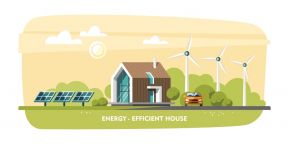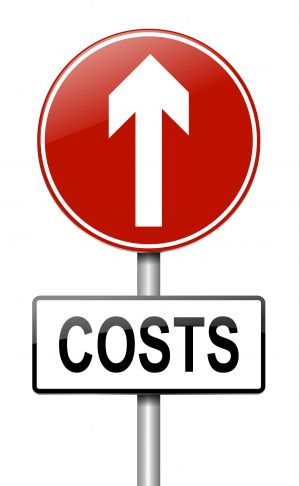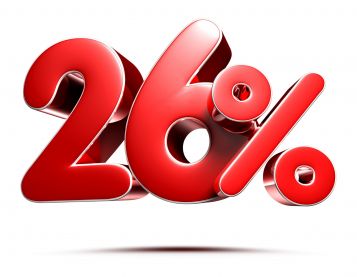Solar Cost Per kWh New Jersey | Solar Panel Cost Per Kilowatt
How would you feel if you could power your home for a few cents per day? This is now possible with solar panels. Solar cost per kilowatt will be the topic of this post. You can find out all about how it works and what benefits come from solar energy. Check out our article to learn more!
The average American family spends $1,000 each year to heat their home in winter and cool their home in summer. To combat these costs, many homeowners have switched over to using renewable energy sources such as solar power or wind turbines. These sources are becoming much cheaper than before because they’re not reliant on fossil fuels that fluctuate in prices due to natural disasters like hurricanes and earthquakes that affect refinery production or geopolitical events that affect oil supply.
How much do solar panels cost per kWh?
A solar panel is the main component that you need to produce electricity. A solar panel costs about $0.06 to $0.08 per kWh, which is the standard way to measure the amount of power a solar panel can make.
Suppose you are interested in producing your electricity with solar panels on your home rooftop. In that case, you will have to do some calculations before investing money into this venture.
Total Lifetime Solar Energy Production
The total production of solar energy over the lifetime of your solar panels is perhaps one of the most important factors to consider when looking at how much it will cost per kilowatt. As this number goes up, so do the benefits you receive from investing in a renewable energy system. When you invest in residential solar system, you don’t have to pay for the electricity your solar panels produce. This means that each kilowatt is essentially “free” once the solar system is paid off, which can take as little as ten years in some areas of the United States.

The total lifetime production of solar energy varies greatly depending on location, solar panel efficiency, hours of sunlight, and whether or not you choose to use net metering. For example, there can be vast differences in the amount of sun available for solar production even within one city. It’s essential to research your area to see how much electricity you could produce using solar panels before investing. Additionally, it’s worth considering that not all solar panels are created equal, and some may be better suited for certain areas than others.
Factors Affecting Peak Capacity Solar Panel Production
Certain factors can affect how much electricity your solar panels produce at their peak capacity. For example, the orientation of your home will determine which way your panels need to face, as well as whether or not you’ll need to use tracking equipment to keep them on target. Since solar panels are generally mounted on the south-facing side of the roof, the time each day that they are exposed to sunlight also varies depending on where you live. In some areas, direct sunlight may be available for as much as 12 hours a day, while others have much less uninterrupted sunshine due to cloud cover or other factors.
Another factor that can affect solar power production is the time of year. For example, although your panels will likely produce more electricity in the summer than during other months, fewer hours of sunlight are available in the wintertime. It’s important to consider how much sunlight you could be making use of based on where you live, what direction your home faces, and when you plan on using the electricity produced by your solar panels.
Solar cost per kWh calculator
A solar cost per kilowatt calculator is a tool that calculates the total cost of ownership for a solar home setup. It will estimate all of the expenses related to installing solar panels and maintaining it, which means that it can provide an accurate estimation of what you might expect to spend in the future.
How many solar panels do I need?
A solar panel is a small, lightweight electrical generator that absorbs photons from the sun and converts them into electricity. Estimated savings will vary based on several factors, such as the kilowatt per hour of your current utility rates and how much energy can be produced by your roof area every day.
Average solar panel price per kilowatt
The average price for a 1 kW solar panel array is between $700 to $1200 (just for the solar panels).

The average solar panel cost varies according to the watts you want. Higher wattage means that it will produce more energy, but this also comes with a price tag! The average home solar panel installation will need between 20 and 24 solar panels to cover 100 percent of its electricity usage. The correct number will vary depending on a variety of factors, including the location and efficiency of your solar panels, as well as their rated power and your personal energy use patterns. Price per watt, therefore, is the most accurate measure of how much it costs to buy and install solar panels.
Solar energy cost per kWh
The cost of generating solar energy in the United States ranges from $0.06 to $0.08 per kilowatt-hour, on average. Energy costs will vary depending on how much electricity your home is using and if they are net metering or not.
Solar Panel Lease Cost
Some homeowners choose to go with a solar lease instead, where they agree to pay a flat fee every month for the use of solar panels and other equipment. The individual or business that owns the panels will typically cover all maintenance costs.
Average cost to install solar panels
The average cost of installation in the U.S can be anywhere from $17,538 to $23,458. Some homeowners and businesses may qualify for federal and state tax credits and subsidies which offset the cost of installation.
For example, in California, you would receive a 30% rebate on your installation from the utility company if you have a solar PV system installed on your home. For those of you who have a business, you would eliminate up to three-quarters of the cost because of federal tax credit for 26% of the installation costs and some other state and local tax incentives.
What impacts the cost of a solar panel installation?
System size
It is the most significant factor that impacts solar panel cost. So, larger systems will require more panels which will equal a higher price tag. Also, since you are using your solar system to produce electricity for your home or business, it’s crucial to have an inverter capable of matching your panel size. Hence, there isn’t any power loss between the two components.
Solar equipment quality
Since the goal is to produce power for your home, you need a solar PV system that is efficient and well-built. The solar system may not have enough power or operate correctly over time if the equipment isn’t of high quality. That would ultimately defeat the purpose of buying a solar panel system in the first place!
Roof characteristics
The type of roof you have will determine how easily your solar panel system can be installed. A tile or metal roof would require more work when drilling into the rooftop for support mounts, whereas a standard asphalt shingle roof is much easier to mount.
Labor & solar panel installer
Installation of a solar panel system is no simple task. You’ll want to work with a professional solar panel installer who knows what they are doing so your system gets installed correctly and without any problems. These professionals should have experience working with solar panels since this will reduce damaging the roof or other parts during installation.
If you’re looking for a cost-effective solar panel installation, then the best option is to work with a local installer who already knows your area well. By working with an installer in your area, they will be able to quickly send someone over when there’s an issue or if something isn’t working correctly.
Location
The best place for solar panels is somewhere with lots of sunlight. So, if you live in an area where it’s always cloudy, your system will produce less electricity than one installed somewhere sunny. This might be an issue since most people desire to buy big enough equipment to meet their demands, which means they may pay more and receive less power than they had anticipated.
Solar panel permits and interconnection costs
Permitting and interconnection costs will need to be paid to connect your solar panels to your electric utility. These are fees added on by the local government or energy company that you’ll need to pay for your system to operate correctly. These costs can add up and bring your solar panel system’s price tag closer to that of a traditional electric utility.
Federal solar tax credit & local incentives
There are tax credits for this type of property. You may be eligible to take advantage of these tax credits if you use solar power in your home.

Federal solar tax credit
You may claim the investment tax credit (ITC), also known as the federal solar tax credit, which allows you to deduct 26% of the cost of putting up a solar energy system from your income taxes. The ITC is available for both residential and commercial installations, with no upper limit on its value.
Solar Renewable Energy Credits (SRECs)
In addition, if you produce more electricity from solar panels than you need to power your home or business, you may be able to sell Solar Renewable Energy Credits (SRECs). When a power company needs an SREC for each megawatt-hour of energy it delivers to its customers, it will buy SRECs from you.
State and local incentives
There are also state and local incentives that can help you save money on your electric bill. These might be in the form of cashback or even low-interest loans for individuals who wish to install solar panels on their property.
Net Metering and Feed-in Tariffs
Net metering is an important way of looking at how much it will cost per kWh when you invest in a home rooftop solar energy system. Essentially, net metering refers to the idea that you can earn credit for the electricity you produce but do not use. You can receive a credit on your bill for any surplus energy produced by the solar power system and used by the utility company. For example, if your solar power system produces 1,000 per kWh of energy in December but only uses 800 per kWh from the utility company, you would be credited with 200 per kWh of surplus solar power.
Your state may also have a feed-in tariff or net metering program in place that will provide special incentives for solar customers.
FAQs
Can you install solar panel system yourself?
Installing DIY solar panels may be a time-consuming process, but with some planning and a well-designed system, you can easily manage your own DIY solar installations.
How much does DIY solar cost?
The cost of a complete DIY solar PV system will vary depending on the size and type of system you install. However, on average, a DIY solar photovoltaic system will cost around $15,000 to $25,000. This price range includes the cost of the solar panels, inverter, racking system, and other associated hardware. It does not include the cost of permits, installation, or any taxes or rebates that may be available. Energy storage is not typically included in a DIY solar PV system but can be added at an additional cost.
How much does a small solar panel cost?
The initial cost of a small solar panel is often lower than the alternative of using grid power from traditional electric companies. However, since the average consumer doesn’t have enough energy to completely fuel their home with these panels, they rely on purchasing batteries and storing electricity for when the sun goes down. These batteries tend to be an additional cost, and the price of a solar panel set-up can range from $5,000 and up. While it can be a costly investment, many consumers prefer solar panels because they do not have to rely on the government for electricity and they also reduce greenhouse gas emissions that harm our environment.
Is it worth getting a battery with solar?
Small battery electrical energy systems can be a great addition to your home or cabin for energy storage and emergency backup power. If you have solar panels, these batteries can store excess electricity your solar panels produce during the day and give you that power at night or on a cloudy day. Storage batteries come in several different types and sizes, but even a basic battery can give you the freedom to take your home off-grid.
How much does solar energy cost per year?
Solar energy can produce electricity at a cost roughly 70% less than that of coal fired power plants, according to a report from the US National Renewable Energy Laboratory. That means that the cost of solar energy is around 4.3 cents per kilowatt-hour (kWh), while the cost of coal fired power is around 12 cents per kWh.
How much energy your panels will produce?
The amount of solar energy that your panels produce depends on a number of factors, including the size and type of panel, the direction and angle of the sun, and the weather. A good way to estimate how much electricity your panels will produce is to use a solar calculator.
